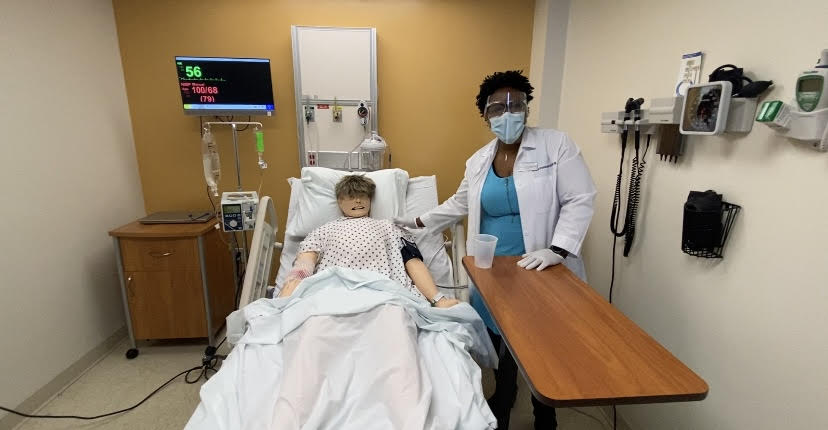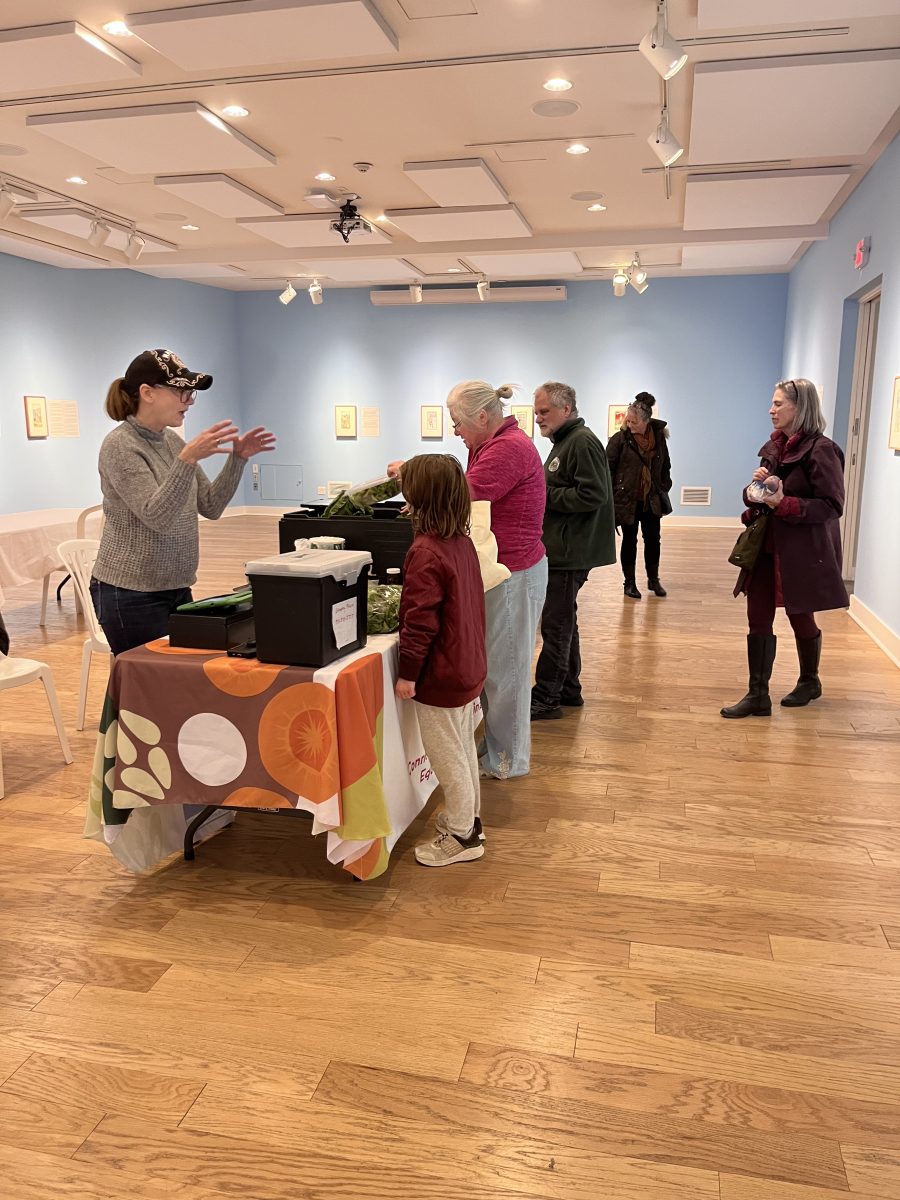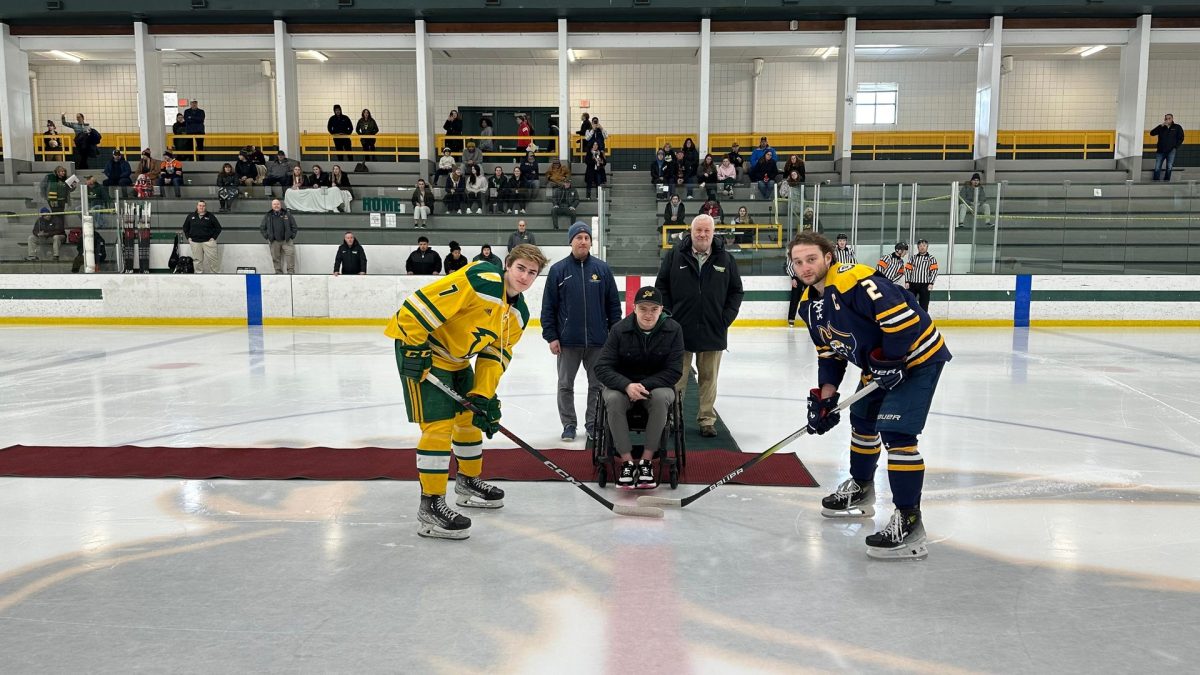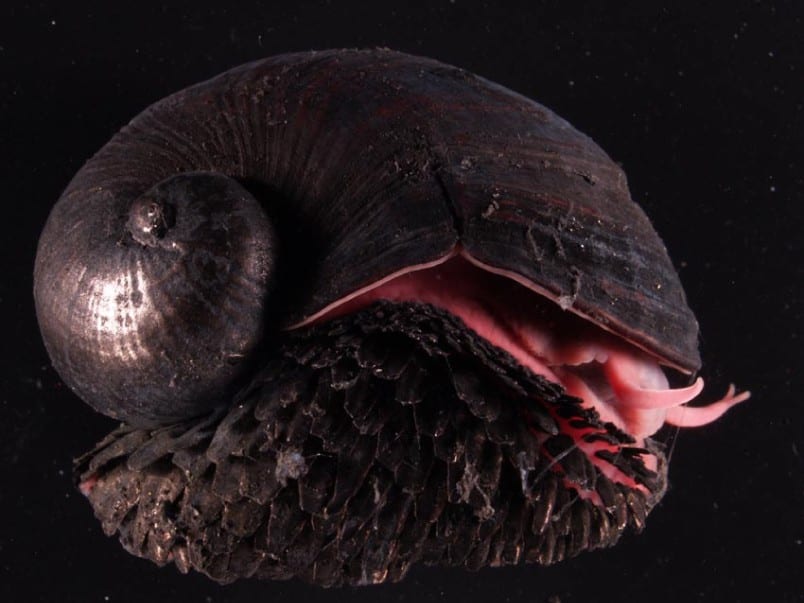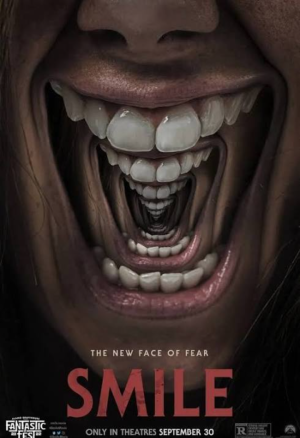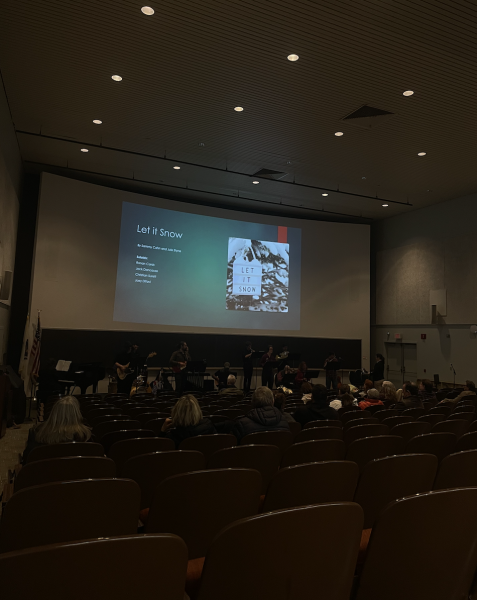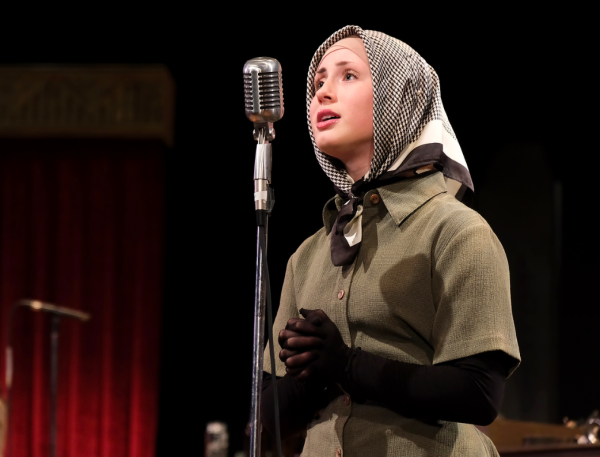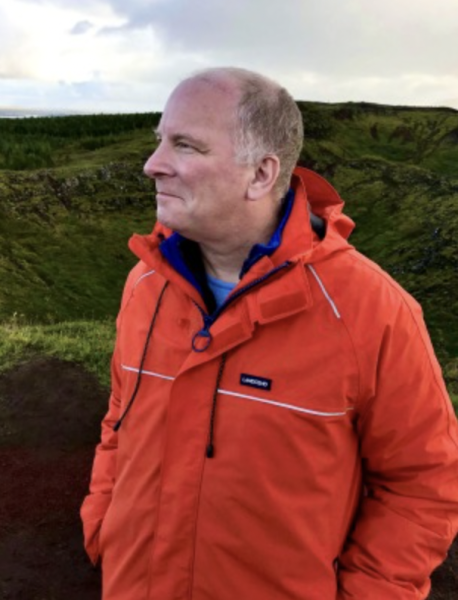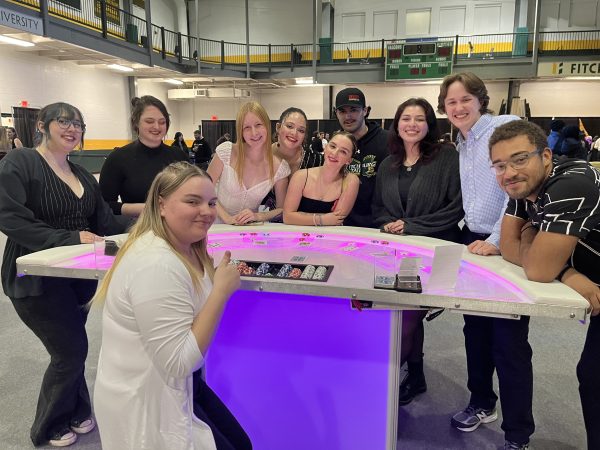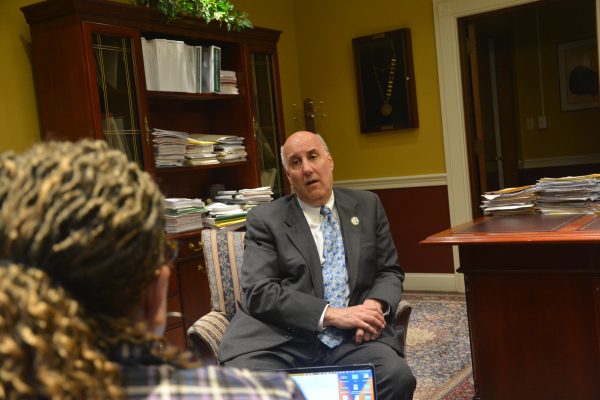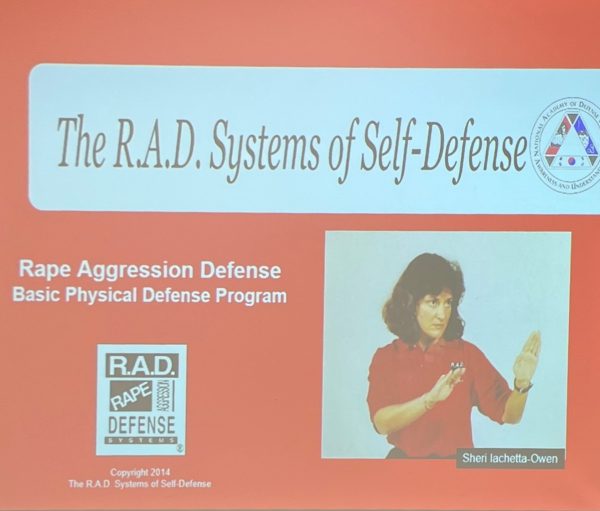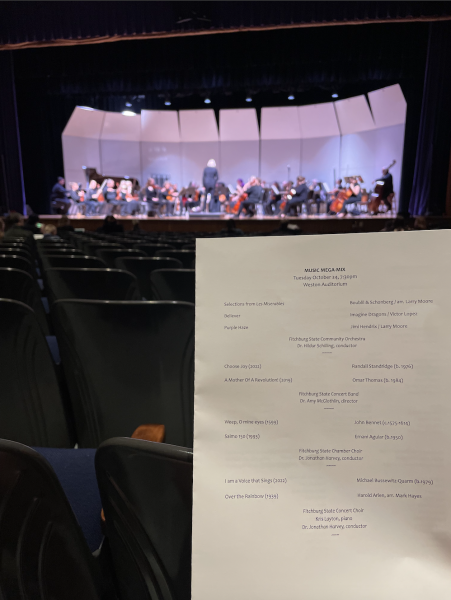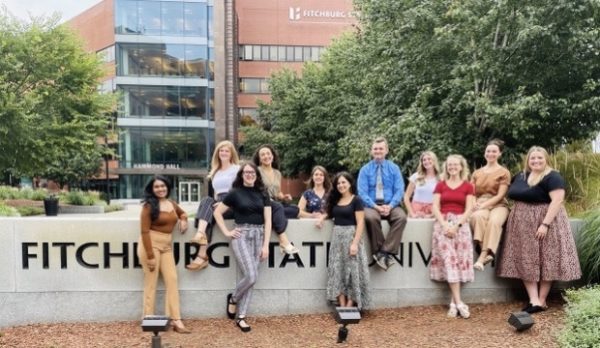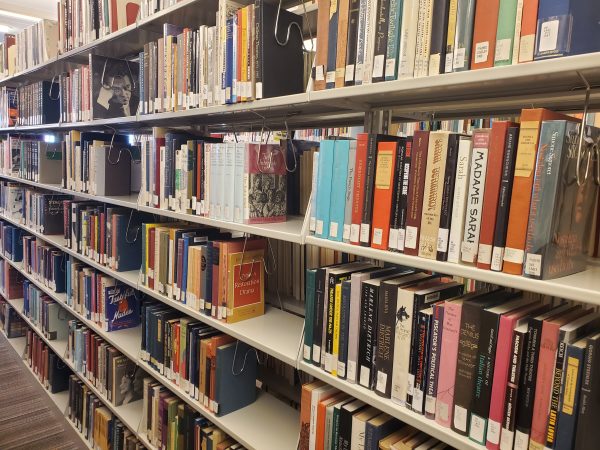Sim Lab Added to FSU Nursing Department
Dr. Rose Kronziah-Seme explaining how the new SIM mannequins work, and the different technologies used in the patient rooms. Photo courtesy of Jordan Costa.
February 26, 2021
-Jordan Costa
The Fitchburg State Nursing Department has added a new addition to their hands-on learning offerings since the fall of 2020. A new SIM lab has been established in the Russell Towers building in the space formerly occupied by Health Services for residential students. The transition of Health Services moving to an off-campus location on Water Street has opened up space for our future nurses to put their skills to the test in a SIMulated mini hospital-like environment before graduating into the medical field.
Since August 2020, the plan for a new SIM lab has been in the works. The space underwent some construction and changes throughout August and September to accommodate the new technologies in the lab. In October 2020, the lab was ready for use. The new SIM lab offers a mini hospital-like environment for the student nurses. The lab is set up like any hospital exam room would be. Now more than ever, the SIM lab allows students to enhance their skills while the pandemic creates challenges for students trying to find clinical placements.
“Due to COVID students may be limited from the experiences they encounter in the clinical setting. Simulation is a learning tool/modality that we can shape the experience and patient to provide students with experiences to prepare them for safe and effective clinical practice.” Professor Caroline Bollettiero said.
In the lab, students put their knowledge to the test by completing patient assessments, answering patient questions, and practicing hands-on skills. The new technologies in the lab create opportunities for the student nurses to learn from their peers. The program is set up for the professor and SIM lab tech to control the manikins while the other peers can watch, listen, and also read the monitors while the student nurse is working in the lab. This way of learning from other peers helps generate constructive feedback as well as learning from others in the situations they might be given in the SIM and how they choose to solve the problems.
Katelyn McCarthy, a senior nursing student at Fitchburg State, shares what the new manikins are capable of. “The SIM people can breathe, we can measure blood pressures, bowel sounds, apical, radial, and pedal pulses, they blink, we can do wound care and injections on them and they have microphones that allow the teacher to be the voice of the SIM person,” said McCarthy.
The Geroge Alden Trust Grant funded one hundred thousand dollars toward the new nursing SIM lab. The grant helped equip the lab with essential technical equipment such as an upgraded audio-visual system and related programming for the life-like manikins.
This new technology helps the future nurses problem solve and practice skills on the next best thing to a real human patient. The new SIM lab also includes infant manikin simulators that will be up and running soon. This new lab differs from the ones that have been previously used by the department in Thompson Hall. SIM educator, professor Carol McKew explains that the labs in Thompson Hall were not ideal for SIM while other skills labs were happening. There was not a lot of privacy in the Thompson Hall location where students could be in the room with just the patient, but rather in a shared space.
“With the individual patient rooms in the new lab as well as private viewing/debriefing areas, it made more sense to move to the new space. In addition, usage of the TH (Thompson Hall) lab for Instructional Skills, and skills testing did not allow much time for simulation.” Professor McKew said.
The lab provides a realistic experience for the future nurses and equips them with not only the skills, but the familiarity of a work setting faithful to the medical field. The patient rooms are set up with a headwall and monitors as well as PPE and sanitizing stations just like in a hospital or a doctor’s office. The new lab has also brought over the Pyxis from the Thompson Hall lab, which is where the medications are held. Students learn to be familiar with this device when dealing with distributing medications for their SIM people.
“We use equipment they will see/use in the clinical setting as well as evidence-based scenarios for realism. Often students may not get experiences in clinical that we can provide in simulation. After each simulation experience, the SIM educators/faculty conduct an intensive debriefing session to allow the student to reflect on the decisions they made in caring for the patient.” said McKew.
This is just the start of the SIM lab center. For right now, only junior and senior nursing students are using the lab. Between four to five students use the lab at a time, and in total, the lab gets used between 25 to 35 hours a week in addition to the 25 to 35 hours a week that the Thompson Hall lab gets used. Senior nursing student, Ameilia Norton shared her experience:
“Although it is nearing the end of my nursing journey at Fitchburg State, I am excited for what this SIM center will provide for the program moving forward. The SIM is unlike the other labs on campus because they are much more interactive and feel more real.”
There has been a lot of positive feedback regarding the new lab by nursing students and faculty. As this space is being used in a positive way, the service that used to reside in that space is greatly missed. Health Services provided on-site care for students who live on campus. They have since transitioned to an off-campus facility where they can still provide for students, however it is not in a close proximity to the dorms.
“Although I am extremely grateful for the new SIM center, I do think that the health services location being moved off campus was not the best scenario. It was an easily accessible, great resource that was available for students on campus, and now I think students struggle without it.” Norton said.
Students who are in need of medical assistance can be seen at the Water Street location. The new SIM lab is simply using the open space. There is no word if Health Services will return to an on-campus location or not. Professor McKew shares her thoughts on the situation.
“I hope that the Center will continue as it is (we have been told there will be able to be renovation to the space to better accommodate our needs), but if relocation is necessary, I trust FSU Administration will find a comparable space.”


